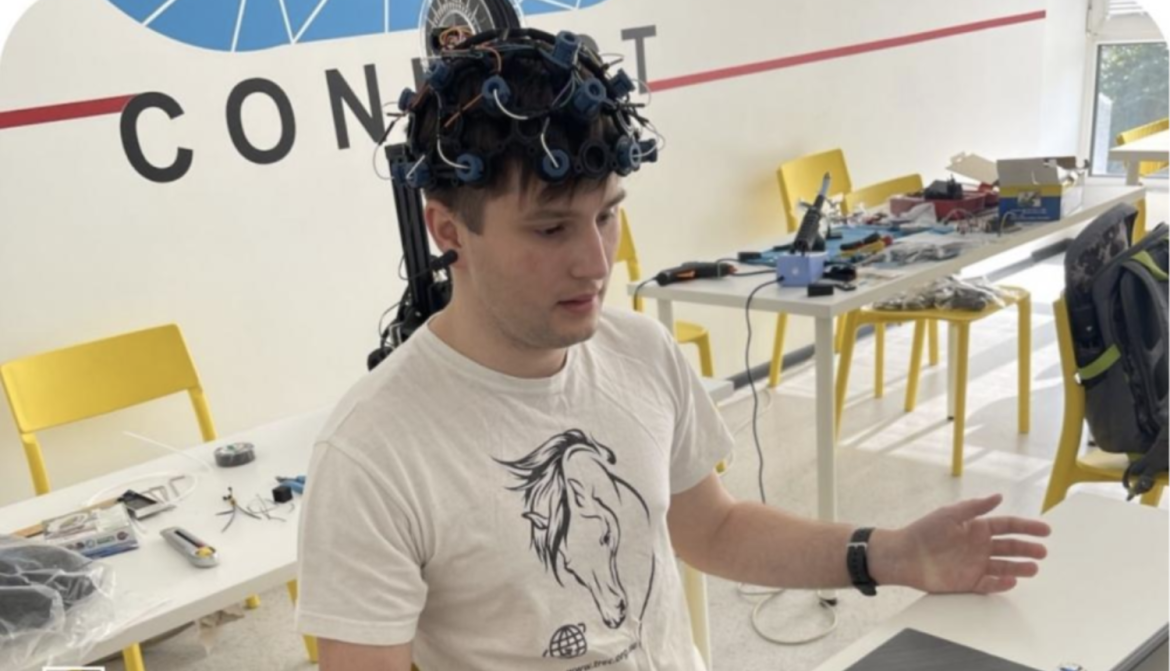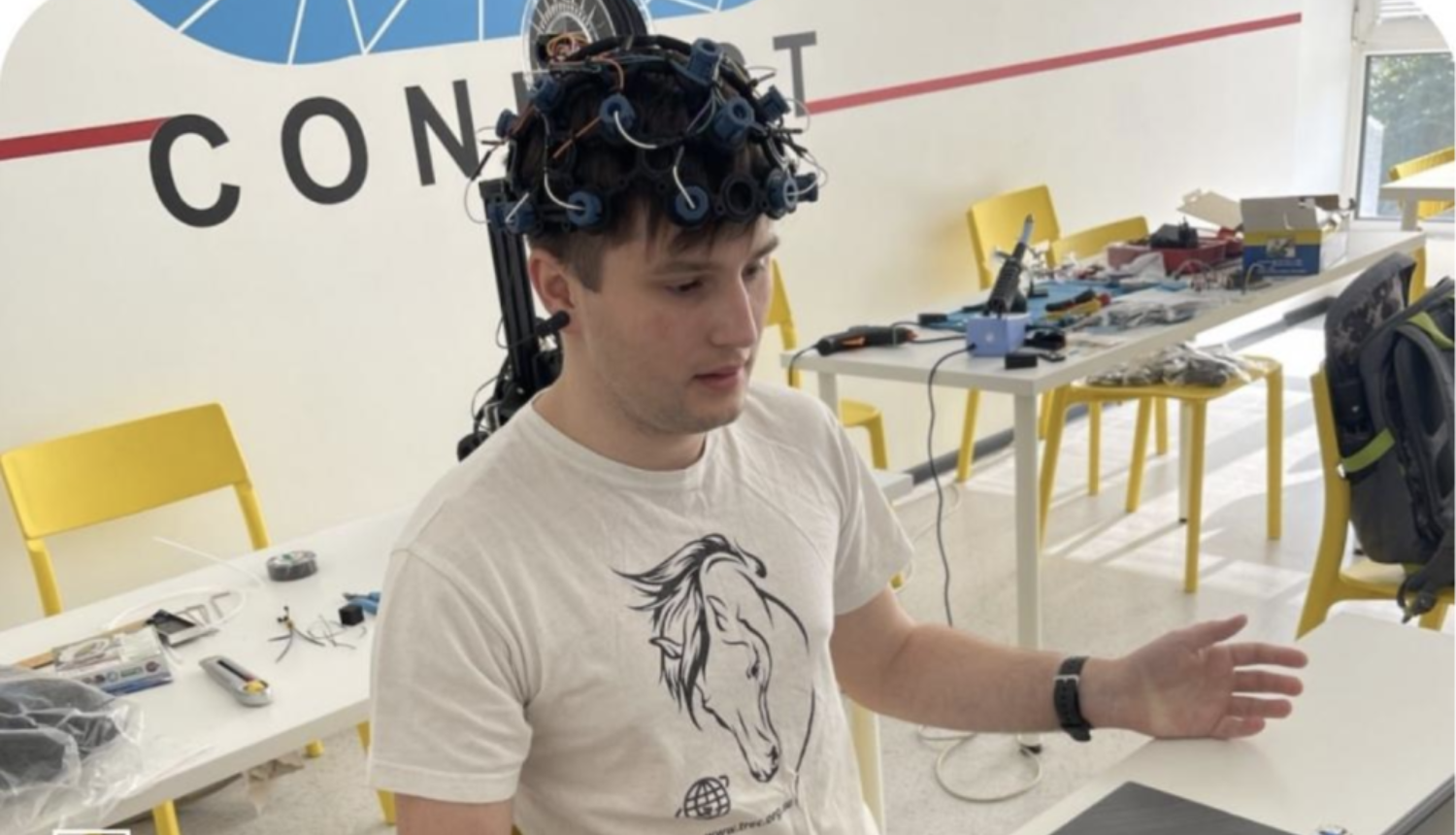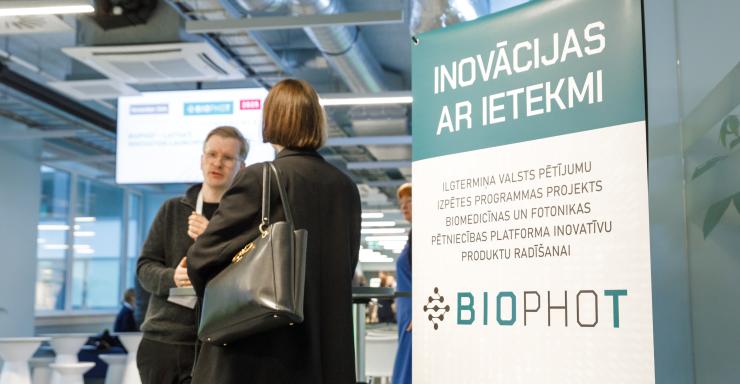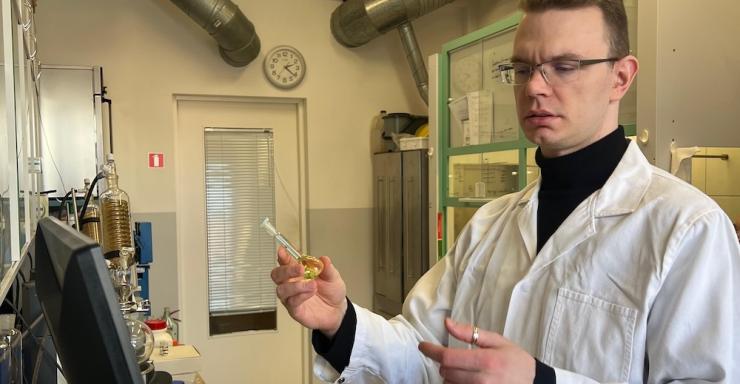The first IT management system approach for a unique device in Latvia - one that reads low-frequency brain radio waves and uses them to control a machine, enabling it to move in different directions and thus connect technology with the human mind - has been developed at the Faculty of Information Technology (IT) of Turība University.

This user application, which has also been patented, was developed by researchers at the university's IT faculty: Associate Professor Jānis Pekša and Professor Dmytro Mamchur. The program was tested with the help of IT student Mykhailo Antropov from Ukraine.
The scientists' goal was to create an application that would make technology more accessible to people globally. The developed application is available to anyone and can even be used in everyday life as an alternative to a traditional keyboard and mouse. The method was designed to provide computerised text input that allows a person to complete tasks using a brain-computer interface. Thanks to artificial intelligence algorithms and the developed application, the device enables input into a computer, allowing the brain to function as both keyboard and mouse.
"This technology enables more people to become IT specialists, especially those who cannot fully operate a computer, such as individuals without the use of their hands. With our patented system and application, they are allowed to work in the programming field. This could help address the labour market shortage of IT specialists by opening up opportunities for those who want to become programmers," explains Jānis Pekša, Dean of the Faculty of IT at Turība University.
Turība University was the lead partner in the INTUX project, whose main aim was to improve the user interface and experience for people with disabilities. As a result of this project, a device was purchased that includes 16 sensors and several control modules. When these sensors are placed on a person's head, they read low-frequency brain radio waves. Much like a radio receiver picks up and plays radio signals, this device captures data from the brain's low-frequency waves.
At Turība University, students can currently study in two IT faculty programs: the short-cycle (college-level) program "Programmer" or the bachelor's degree program "Computer Systems". Studies are conducted entirely in English, opening career opportunities both in Latvia and internationally for future IT professionals. Responding to demand, in addition to on-site learning, Turība now also offers distance learning (e-studies) for both programs - a format that is highly sought after and appreciated.
A flexible learning process is one of the core advantages. Additionally, the modular teaching method, the approximately 1:3 ratio between lectures and practical training, and remote access to study materials enable students to study online.
Turība University organises various guest lectures and offers practical knowledge, while students also have the opportunity to participate in exchange studies at other engineering universities in Europe. Course instruction takes place in the ICT laboratory, which is equipped with everything necessary for learning.


